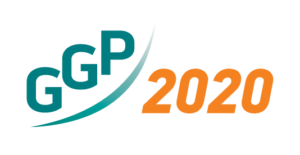 The Generations & Gender Programme is holding a GGP Northern Europe Regional Meeting on Thursday, November 29th, in Stockholm. The Regional Meeting is being hosted by SUDA at Stockholm University.
The Generations & Gender Programme is holding a GGP Northern Europe Regional Meeting on Thursday, November 29th, in Stockholm. The Regional Meeting is being hosted by SUDA at Stockholm University.
The aim of the Regional Meeting is to provide updates from the GGP’s Central Coordination team about recent developments, including methodological innovations, and to discuss the need for comparative data on fertility and family dynamics in Northern Europe.
Light refreshments will be provided throughout the day and lunch will also be provided. Invited participants can request expenses for travel and accommodation from the GGP central coordination team by emailing ggp@nidi.nl.
The agenda for the day can be found here. We kindly ask all participants to register using the form below:
 The Generations & Gender Programme is holding a GGP Northern Europe Regional Meeting on Thursday, November 29th, in Stockholm. The Regional Meeting is being hosted by SUDA at Stockholm University.
The Generations & Gender Programme is holding a GGP Northern Europe Regional Meeting on Thursday, November 29th, in Stockholm. The Regional Meeting is being hosted by SUDA at Stockholm University.
The aim of the Regional Meeting is to provide updates from the GGP’s Central Coordination team about recent developments, including methodological innovations, and to discuss the need for comparative data on fertility and family dynamics in Northern Europe.
Light refreshments will be provided throughout the day and lunch will also be provided. Invited participants can request expenses for travel and accommodation from the GGP central coordination team by emailing ggp@nidi.nl.
The agenda for the day can be found here. We kindly ask all participants to register using the form below:
The agenda for the GGP Latin America Regional Meeting is now available online!
Download the agenda here and note that it is still possible for interested parties to join the event by completing the registration form below.
The Generations & Gender Programme is holding the GGP Latin America Regional Meeting on Tuesday, October 23, in Puebla, Mexico during the VIII International Congress of the Latin American Population Association.
The aim of the meeting is to provide updates from the GGP’s central coordination team about recent developments and to discuss opportunities to expand the GGP in Latin America. The meeting is an opportunity to learn about the methodological innovations that the GGP is currently introducing.
Time & date : 14:00 – 17:00 hrs | Tuesday, October 23, 2018
Location : Salón B-203 | Universidad Iberoamericana | Puebla, Mexico
: : : : : : : : : : : : :
El Generations & Gender Programme organiza una Reunión Regional de GGP América Latina el martes 23 de octubre en Puebla, México. La Reunión Regional de GGP América Latina se llevará a cabo durante el VIII Congreso Internacional de la Asociación Latinoamericana de Población.
El objetivo del encuentro es informar a los participantes sobre los avances más recientes del Equipo de Coordinación Central del GGP y debatir sobre las oportunidades para el GGP en América Latina. En particular, la reunión será una oportunidad para aprender sobre las innovaciones metodológicas que el GGP está introduciendo actualmente.
Hora y fecha: 14:00 – 17:00 hrs | Tuesday, October 23, 2018
Local : Salón B-203 | Universidad Iberoamericana | Puebla, Mexico
: : : : : : : : : : : : :
O Generations & Gender Programme está a organizar a Reunião Regional do GGP na América Latina na terça-feira, 23 de Outubro, em Puebla, México. A Reunião Regional do GGP na América Latina decorrerá durante o VIII Congresso Internacional da Associação Latino-Americana de População.
O objectivo do encontro é informar os participantes acerca dos desenvolvimentos mais recentes da Equipa de Coordenação Central do GGP e debater acerca das oportunidades para o GGP na América Latina. Em particular, a Reunião será uma oportunidade para descobrir mais acerca das inovações metodológicas que o GGP está actualmente a introduzir.
Hora e data : 14:00 – 17:00 hrs | Tuesday, October 23, 2018
Location / Local / Localização : Salón B-203 | Universidad Iberoamericana | Puebla, Mexico
: : : : : : : : : : : : :
 The Generations & Gender Programme is holding a GGP South-Eastern Europe Regional Meeting on Thursday, September 13th, in Zagreb. The Regional Meeting is being hosted by the Ministry of Labour in Zagreb (Ulica grada Vukovara 78, Zagreb)
The Generations & Gender Programme is holding a GGP South-Eastern Europe Regional Meeting on Thursday, September 13th, in Zagreb. The Regional Meeting is being hosted by the Ministry of Labour in Zagreb (Ulica grada Vukovara 78, Zagreb)
The aim of the Regional Meeting is to provide updates from the GGP’s Central Coordination team about recent developments, including methodological innovations, and to discuss the need for comparative data on fertility and family dynamics in South-Eastern Europe.
Light refreshments will be provided throughout the day and lunch will also be provided. Invited participants can request expenses for travel and accommodation from the GGP central coordination team by emailing ggp@nidi.nl.
The agenda for the day can be found here. We kindly ask all participants to register using the form below:
The Generations & Gender Programme held its GGP Asia Regional Meeting on Friday, July 13th, in Shanghai.
The GGP Asia Regional Meeting was held as Special Session number 11 of the Asian Population Association’s 4th APA Conference at Shanghai University on Friday, 13 July 2018 from 16.30 – 18.00 hrs.

The aim of the Regional Meeting is to provide updates from the GGP’s central coordination team about recent developments, including methodological innovations, and to discuss opportunities to expand the GGP in Asia.
Presenters from China, Japan, South Korea, Taiwan and Hong Kong presented updates about GGP and the state of the art on longitudinal surveys with a gender and family perspective in their countries.
Het thema van deze bijeenkomst uit de serie van Expert Meetings van het Nederlands Interdisciplinair Demografisch Instituut (NIDI-KNAW) en de Rijksuniversiteit Groningen (RUG) had als kernvragen: Hoe wordt het “spitsuur van het leven” tegenwoordig door families ervaren, welke verschillen zijn er in de belevenis van vrouwen en mannen en wat zijn de lange termijn implicaties van het fenomeen “spitsuurgezin”?
Het volledige programma is hier beschikbaar.
De Expert Meeting presentaties kunt u hier als PDF downloaden :
Fill the form below with your contact information to receive our monthly GGP at a glance newsletter.
